
A Comprehensive Fleet Fuel Management System Reduced Fuel Costs by 15%
Our client, a regional transportation company operating a large fleet of trucks, needed a tailored solution to modernize logistics operations. They were experiencing inefficiencies in route management, fuel tracking, and internal data handling. Their goal was to implement a fleet and fuel management system that would digitize operations, integrate GPS tracking, and deliver real-time insights for smarter decision-making.
Features
The fleet fuel management system was delivered as a full-featured, web-based fleet and fuel management system that tackled several core needs of the logistics business. Below are the major functionalities integrated into the platform:
- Real-Time Vehicle Tracking: Integrated GPS tracking with a live map interface for instant fleet location updates.
- Fuel Monitoring: Detailed fuel consumption reports, alerts for irregular fuel use, and tracking of fill-ups vs. mileage.
- Driver Behavior Analytics: Monitoring of driver habits such as speeding, idling, harsh braking, and overall efficiency.
- Route Optimization Engine: Intelligent route planning to reduce fuel usage and delivery times.
- Performance Dashboards: Centralized analytics hub providing data insights, historical trends, and performance KPIs.
- Alerts and Notifications: Automated alerts for maintenance, fuel anomalies, and driver behavior issues.
- Data Synchronization: Seamless integration with internal business systems to streamline reporting and operations.
Challenges
Implementing this comprehensive FMS presented several significant challenges:
- Device Integration Complexity: The client utilized GPS tracking devices from multiple vendors, requiring complex integration to create a unified tracking system for this customized fleet fuel management system website.
- Real-Time Data Processing: With a large fleet, processing and presenting real-time tracking data without latency required sophisticated architecture.
- Data Accuracy and Reliability: Ensuring consistent accuracy across all tracking devices and fuel monitoring systems was critical for meaningful insights.
- Legacy System Integration: The platform needed to interface smoothly with the client’s existing internal systems without disruption.
- User Adoption: Creating an intuitive interface that employees could quickly adapt to without extensive training was essential for project success.
AgileTech’s Solutions
To address these challenges, we implemented a multi-faceted approach for the fleet management system:
All-in-One Integration Platform
We developed a sophisticated middleware layer capable of handling multi-vendor device integration, standardizing data formats across all device types. This adapter-based architecture allowed for easy addition of new device types without core system modifications.
Scalable Architecture
Our team designed a highly scalable backend architecture using .NET and ASP.NET Core that efficiently processed large volumes of real-time data. The system utilized message queuing and parallel processing techniques to handle peak loads without performance degradation.
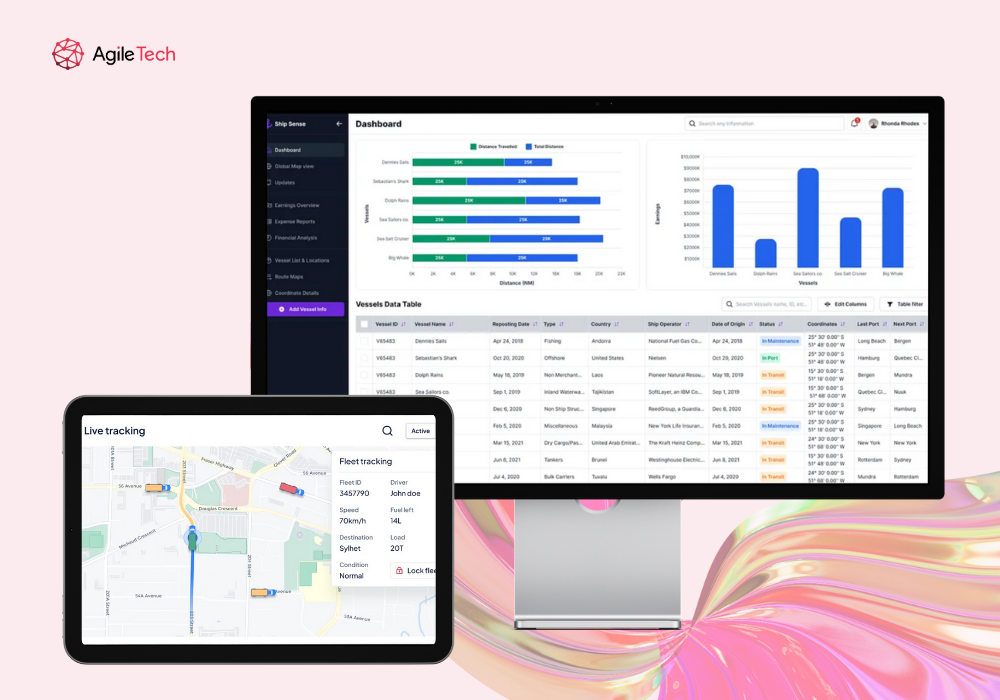
Advanced Analytics Engine
We implemented sophisticated algorithms to analyze fuel consumption patterns, driver behavior, and route efficiency, providing meaningful, actionable insights. The system incorporated machine learning elements to identify patterns and anomalies that would be difficult to detect manually.
Seamless System Integration
Custom API development ensured smooth data flow between the new FMS and existing internal systems. We created bidirectional data synchronization mechanisms with appropriate transformation layers to accommodate legacy system limitations.
Intuitive User Interface
The React-based frontend with Material UI delivered an intuitive user experience that required minimal training for adoption. We employed role-based interfaces that presented each user with only the tools and data relevant to their responsibilities.
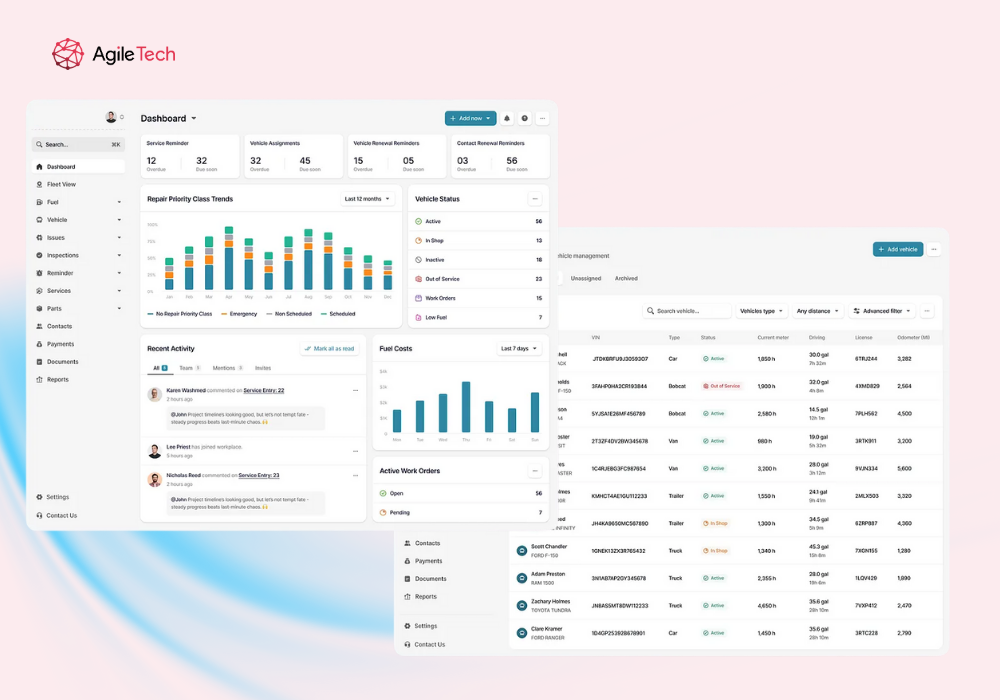
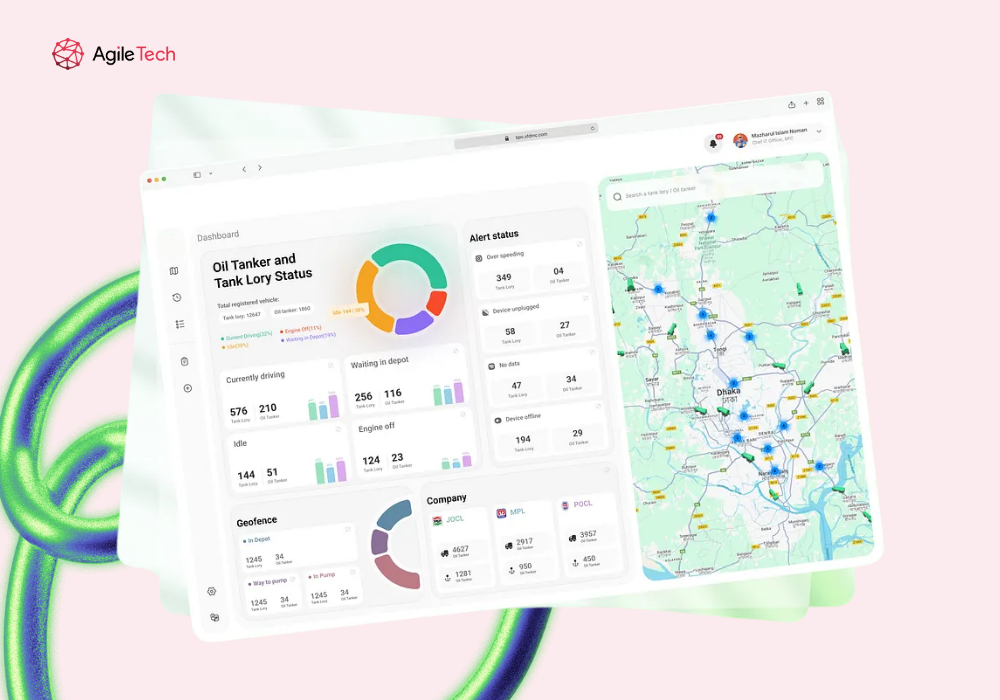
Project Outcomes
The implementation of the fleet and fuel management system brought significant operational improvements:
- Seamless real-time vehicle tracking and monitoring
- Centralized dashboard for fleet performance and fuel efficiency
- Improved data accuracy and faster decision-making
- Better coordination between field teams and dispatchers
- Automated reporting and fuel usage analysis
- Enhanced driver accountability and performance monitoring
The Impact
The business impact of implementing the new GPS fleet management system was substantial:
- 15% reduction in overall fuel consumption through optimized routing and fuel monitoring
- 60% improvement in employee productivity, thanks to automated processes and better data visibility
- 25% faster decision-making via comprehensive dashboards and real-time analytics
- 40% increase in operational efficiency by eliminating manual data handling and streamlining internal workflows
Technologies Used
The fleet fuel management system was built using a modern, scalable technology stack:
Frontend:
- React with Material UI for an intuitive user interface
- React Form Hooks for streamlined data entry
- TypeScript for enhanced code reliability
Backend:
- NET, ASP.NET Core provides robust server-side processing
- RavenDB for efficient document storage and retrieval
Post-launch Support
After deployment, we provided ongoing maintenance and technical support to ensure the FMS website remained stable, secure, and adaptable. Our post-launch services included:
- Real-time bug fixes and performance monitoring
- User training and onboarding for staff
- Feature updates based on client feedback
- System scaling and infrastructure optimization
Project Images
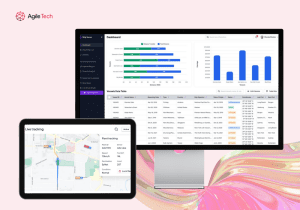
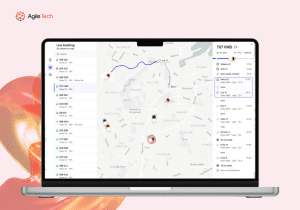
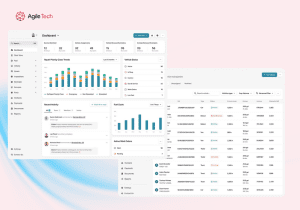
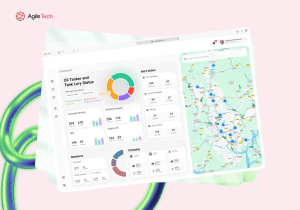
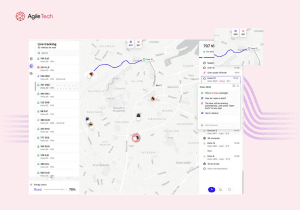
Looking to build a Fleet Fuel Management System?
Consult Industry Specialists
Connect with us today to discuss your software development needs and discover how our tailored outsourcing services can propel your business forward.